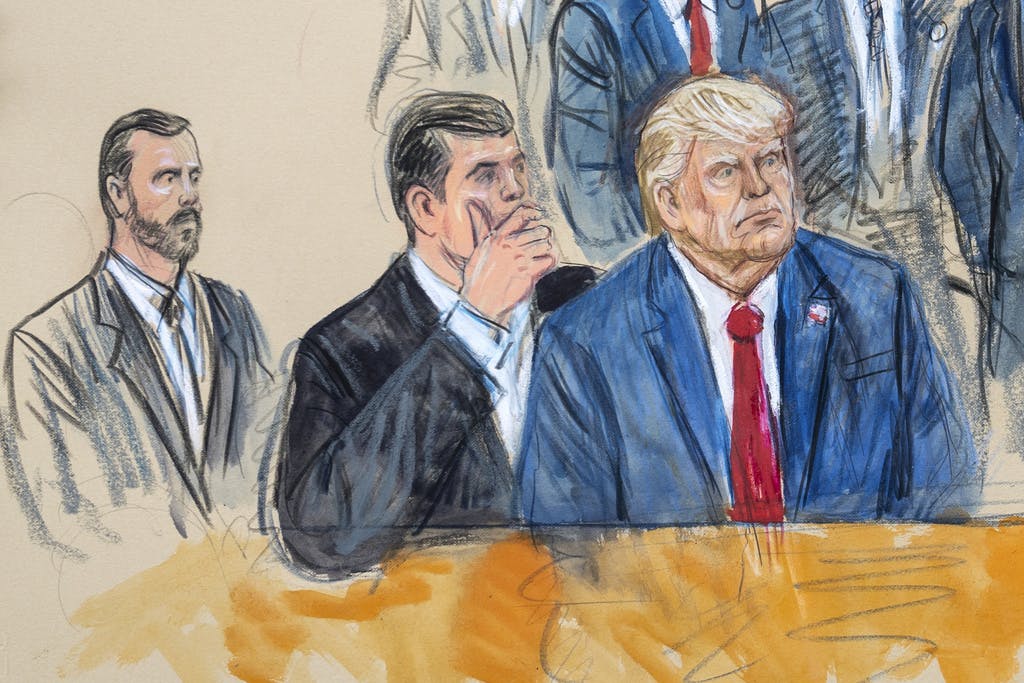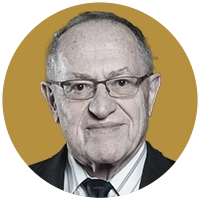Trump Case Could Turn on Which of Three Possible Jury Instructions Is Given by the Judge
The trial could hinge on whether a jury finds that Trump’s belief that he won the 2020 election was ‘reasonable.’

The guilt or innocence of President Trump on charges relating to the 2020 elections may well turn on which of three possible jury instructions the judge will give.
The core of the charges against Mr. Trump is that he took actions and made statements that were corruptly intended to undo President Biden’s legitimate victory. Essential to these charges is the allegation that Mr. Trump knew and believed that Mr. Biden had won the election fair and square — and that he acted corruptly in falsely claiming victory for himself.
The prosecution will try to prove that the election was entirely legitimate, that Mr. Trump was told that he had lost — and that he believed he had lost.
The judge will have to instruct the jurors as to what they have to find beyond a reasonable doubt before they can vote to convict him. The defense will seek an instruction that requires all 12 jurors to find beyond a reasonable doubt that Mr. Trump actually knew and believed that the election was fair and that he had lost.
It will be difficult for the prosecution to get into Mr. Trump’s mind in order to establish his subjective beliefs. It is likely that at least some jurors may conclude that the prosecution failed to prove beyond a reasonable doubt that Mr. Trump did not believe he had won.
For that reason the prosecution will seek an instruction that would make it much easier to convict. They will ask the judge to instruct the jury that even if Mr. Trump subjectively believed he had won, that belief has to be “reasonable.” They will present evidence that many of Mr. Trump’s closest advisers told him he had lost, and so any belief he may have held to the contrary would be unreasonable.
If the prosecution presents evidence of what some people told Mr. Trump, the defense will have to be allowed to show that other people supported his view that the election had been stolen.
Mr. Trump would also be allowed to introduce external evidence — such as the Dinesh D’Souza film “2,000 Mules” purporting to depict electoral fraud — that many voters believed that the 45th president had actually won. This would bolster Mr. Trump’s claim that his belief, even if wrong, was reasonable.
If a reasonableness instruction is given, and Mr. Trump is denied the right to present evidence of others who believed the election was stolen, it is likely that any conviction would be reversed on appeal.
The third possible instruction would require the jury to find beyond a reasonable doubt that the election was actually stolen. Such an instruction would open the door to Mr. Trump’s legal team presenting evidence that the election was actually stolen or unfair.
That would turn the trial into a political debate about the 2020 election, so it is unlikely therefore that such an instruction would be given.
Accordingly the two most likely instructions would be the one that requires the jury to find that Mr. Trump did not believe Mr. Biden had won legitimately, or an instruction that required the jury to find that even if the former president believed that the election was stolen, his belief was unreasonable.
The centrality of the judge’s instruction makes it imperative that the judge presiding over the trial be entirely objective and without biases. Count on the defense to raise questions as to whether Judge Tanya Chutkan, who was selected randomly out of the wheel, satisfies that criteria, especially in a case as controversial as this one is among our deeply divided voters.
The fact that President Obama appointed her is not a disqualification, but Mr. Trump could zero in on the fact that she worked for years in a heavily Democratic law firm — Boies, Schiller & Flexner — in which Hunter Biden was not only employed, but a client.
Considering that Mr. Trump claims that the press and social media repression of the disclosures relating to Hunter Biden’s business dealings could have influenced the outcome of the 2020 election, this could well prove to be a question in the case.
When the leading candidate running against the incumbent president is being prosecuted by the Attorney General, who serves at the pleasure of the president, the trial must not only be fair beyond any doubt. It must also be seen to be fair by Americans.

